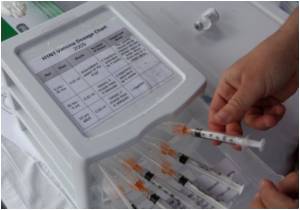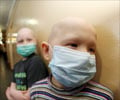A Framework that ensures sharing of influenza virus samples with partners who need information to take actions to protect public health.

In addition, the Framework will also put the world in a better position for seasonal influenza and potential pandemic threats such as the H5N1 virus, because some key activities will begin before the next pandemic, such as greater support for strengthening laboratories and surveillance, and partnership contributions from the industry.
During an influenza outbreak, knowing the exact makeup of the virus is critical for monitoring the spread of the disease, for knowing the potential of the virus to cause a pandemic and for creating the life-saving vaccines as well as other technological benefits. However, developing countries often have limited access to these vaccines for several reasons: they often do not have their own manufacturing capacity, global supplies can be limited when there is a surge in demand as is seen during pandemics, and vaccines can often be priced out of the reach of some countries.
The new Framework will help ensure more equitable access to affordable vaccines and at the same time, also guarantee the flow of virus samples into the WHO system so that the critical information and analyses needed to assess public health risks and develop vaccines are available.
" This has been a long journey to come to this agreement, but the end result is a very significant victory for public health," says Dr. Margaret Chan, Director-General of the World Health Organization.
"It has reinforced my belief that global health in the 21st century hinges on bringing governments and key stakeholders like civil society and industry together to find solutions."
Advertisement
"The framework provides a much more coherent and unified global approach for ensuring that influenza viruses are available to the WHO system for monitoring and development of critical benefits such as vaccines, anti-viral drugs and scientific information while, at the same time, ensuring more equitable access to these benefits by developing countries," says Dr Keiji Fukuda, Assistant Director-General of Health Security and Environment at WHO.
Advertisement
"It was a historic negotiation that proved that when governments show statesmanship, stature, responsibility and fine diplomacy, they can successfully meet the most pressing global challenges," says Gomez-Camacho.
"This agreement promotes global health security and solidarity in pandemic times. It reflects also a unique partnership with industry, and contains concrete measures of cooperation with both industry and civil society," says Angell-Hansen.
The agreed upon framework will be presented to the World Health Assembly in May this year for its consideration and approval.
Source-ANI













